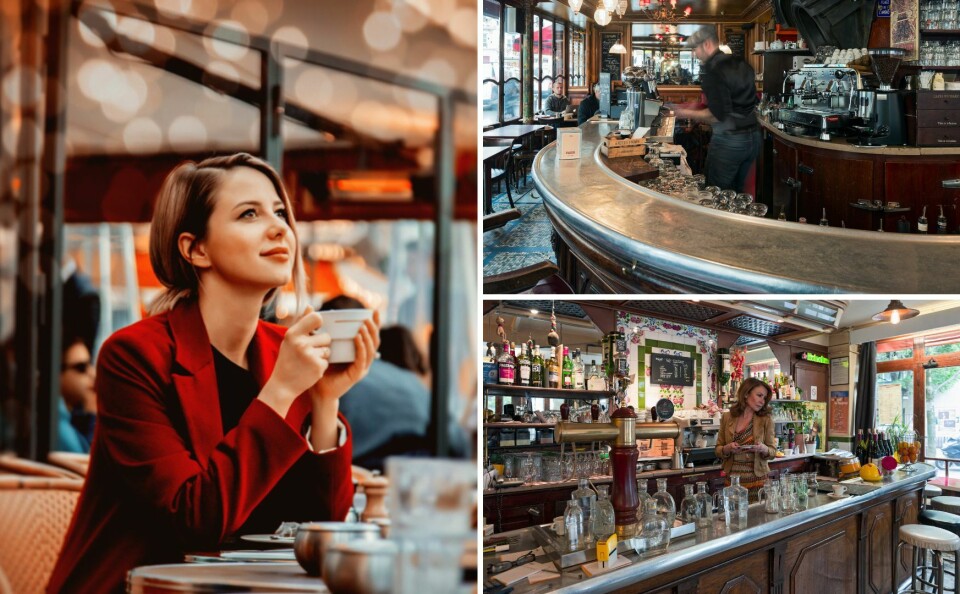-
Photos: D-Day beaches and Carcassonne put forward for UNESCO recognition
The iconic sites are set to be considered in July next year
-
Know your cheeses and their seasons: which to eat in France in February
Cow’s milk cheeses dominate as winter comes to an end
-
Films and series to watch in February to improve your French
Every month we outline good film and TV series to improve your language
Can Unesco save France’s collapsing cafe culture?
Campaigners have failed twice but continue the fight to have French bistros recognised as intangible cultural heritage

They have been hailed “a unique human experience”. Now, an association representing France’s bistros and cafes is bidding to have them formally recognised by Unesco as intangible cultural heritage.
The Association pour la reconnaissance de l’art de vivre dans les bistrots et cafés de France, formed in 2018, is headed by Alain Fontaine, who opened Le Mesturet bistro in Paris some 20 years ago.
His campaign comes as the number of bistros and cafes in France continues to dwindle, down from around 450,000 establishments after World War Two, 200,000 in 1960 and 70,000 in 1992 to fewer than 40,000 today.
‘It is a model of sociability for the whole world’
“It is very important for me because when people come into a bistro or a cafe, they do so informally, to drink, eat and share a moment.
“It is not a formal setting like a restaurant,” Mr Fontaine said.
“It’s very important to the French, but also for the whole world, because it’s a model of sociability that runs counter to so much anti-social behaviour.”
The difference between a bistro and a cafe is that the former offers meals throughout the day, while cafes do not supply food other than light snacks.
Read more: Bistro and bar open at French retirement home to boost social links
Misunderstanding over Ministry of Culture paperwork
In France, all bids to be included on the Unesco list must go through a selection process run by the Ministry of Culture.
The association has twice applied – and failed – to be selected, but Mr Fontaine remains confident.
“There was a huge misunderstanding between ourselves and the ministry as to how the forms should be filled in and the file submitted,” he said, “but we are starting again from scratch.
“I am hopeful we will be on the French list of intangible cultural heritage by summer. Once on there, we are in with a chance of Unesco recognition.”
‘We should not just stand by and accept the end’
Unesco’s Intangible Cultural Heritage list recognises practices, knowledge, skills, and other elements that demonstrate the diversity of humanity’s cultural heritage, including Spanish flamenco, Jamaican reggae, and traditional Chinese tea-making.
In 2022, it added the ‘artisanal know-how and culture of France’s baguette bread’, as well as traditional bear festivals in the Pyrenees.
Read more: France’s mediaeval ‘bear hunt’ festivals added to Unesco heritage list
Mr Fontaine’s description of what makes French bistros unique includes their galvanised zinc counters serving alcoholic and other drinks, plus traditional dishes made on the premises.
He links their steady decline to the industrialisation of French farming and the closure of factories.
“Society has changed and I appreciate we cannot go back, but that does not mean we should just stand by and accept the end of something special,” he said.
Why are so many struggling – or closing down?
Bistros and cafes had a difficult 2023, with some forced to shut in the wake of successive social and health crises.
Hardest hit have been those in city centres, which used to enjoy steady custom from nearby offices.
After Covid normalised home-working, however, habits have changed. Many establishments report that some days, especially Tuesdays and Thursdays, are exceptionally busy, but few customers come on Mondays and Wednesdays and almost none on Fridays.
At the same time, staff wages have shot up amid concerns there were not enough people willing to work in the sector.
Inflation has made food more expensive, with many bistros unable to pass on the full costs to clients.
Commercial electricity prices have also soared as a result of the war in Ukraine, with some establishments paying 10 times more than before.
Meanwhile, changes to rules regarding lunch vouchers so they can be used to buy unprocessed food such as pasta in supermarkets, rather than only sandwiches or restaurant/bistro/cafe fare, have also hit revenues.
Banque de France figures from January to October showed a 52% rise in the number of liquidations of restaurants, bistros and cafes in 2023 compared to the year before, equating to 5,124 establishments.
Related articles
Cheap and cheerful French restaurants are back in fashion
Key cultural and sporting events in France in 2024
Bourges is named European Capital of Culture 2028
























